The Cost of Addiction And the Cost of Recovery
When you’re struggling with addiction and know you need help, the idea of paying for treatment without insurance can feel overwhelming. Many people delay or avoid treatment altogether because they believe they can’t afford it, and regularly ask themselves How Do I Afford Rehab Without Insurance? But the truth is, there are options and going without care can end up costing far more in the long run.
From medical emergencies and legal issues to job loss and fractured relationships, addiction has a way of draining your resources over time. Treatment is an investment in your future, your health, and your ability to rebuild. Even without insurance, there are ways to make recovery possible and sustainable.
Affording Rehab: Understanding the Cost of Treatment
Addiction treatment varies widely in price depending on the level of care, the duration of the program, and the facility itself. Some residential programs can cost thousands of dollars per month, while outpatient programs and community-based services may be far more affordable.
Before assuming a program is out of reach, ask for a detailed breakdown of costs. Many treatment centers offer free consultations and can walk you through the expenses involved, including room and board, therapy sessions, medications, and aftercare support.
It’s also important to factor in what’s included. Some programs may seem costly upfront but include comprehensive services like psychiatric care, trauma therapy, relapse prevention, and family counseling all of which can improve long-term outcomes.
How Do I Afford Rehab Without Insurance? Potential Options
so, How Do I Afford Rehab Without Insurance? If you’re uninsured, you are not alone and you’re not without options. Many treatment facilities work with people from all financial backgrounds to help them get the care they need.
State-Funded Treatment Programs
Each state receives funding from the federal government to provide addiction treatment services for individuals who cannot afford private care. These state-funded programs may be available through:
- Local health departments
- Community mental health centers
- Publicly funded rehab facilities
You may need to provide proof of residency, income, and a lack of insurance to qualify, but these programs can be a lifeline for those who have nowhere else to turn.
Sliding Scale Fees
Many private treatment centers offer sliding scale pricing based on your income. This means your out-of-pocket cost is adjusted depending on what you can afford. Don’t be afraid to ask providers want to help you, not turn you away.
Payment Plans and Financing
Even without insurance, many treatment centers allow you to pay for care over time. This could include:
- In-house financing plans
- Low- or no-interest medical loans
- Credit cards with healthcare promotions
- Nonprofit healthcare lenders
You may also consider asking a trusted family member to co-sign or support you financially. While these conversations can be difficult, involving loved ones early in the process often leads to more support during recovery.
Scholarships and Grants
Some rehabs offer scholarships or grants to individuals in financial hardship. These may be funded by nonprofit organizations, donors, or community programs. These funds are limited, so it’s important to apply early and ask each center about availability.
Organizations like 10,000 Beds or the Substance Abuse and Mental Health Services Administration (SAMHSA) may also have listings or opportunities for financial assistance.
Employer Support or EAPs
Even if you don’t have insurance, your employer may offer an Employee Assistance Program (EAP) that can help cover or connect you with treatment services. These programs are often confidential and can be a great starting point if you’re still working.
If you’re unemployed, you might qualify for Medicaid or other state-sponsored coverage once you apply and some treatment centers can help you with the application process.
Is Free Rehab Really Free?
“Free” rehab programs exist, especially through nonprofit or faith-based organizations, but they may come with trade-offs. For example, free programs might have:
- Long waitlists
- Limited services (no detox or psychiatric care)
- Short-term treatment plans
- Requirements to attend religious services
That said, some of these programs are life-changing and can be a critical first step in recovery. If you’re ready to get help, even a short-term or lower-intensity option is better than continuing to suffer alone.
Prioritizing the Right Level of Care
If full inpatient care is out of your budget, you may still benefit from outpatient or intensive outpatient programs (IOP). These provide structured therapy, group support, and skill-building several times per week while allowing you to live at home. These models are often far more affordable than residential treatment and may still meet your needs especially if you have a strong support system at home.
In some cases, partial hospitalization programs (PHP) offer a middle ground, providing comprehensive daytime care without overnight stays.
How Addiction Treatment Pays Off
If you have to ask How Do I Afford Rehab Without Insurance, you should also ask how addiction treatment pays off. While the financial burden of treatment can be real, it’s important to consider what you’re gaining and what you’re potentially saving.
Without treatment, addiction often leads to:
- Emergency room visits
- Medical complications
- Legal costs
- Lost income from missed work
- Ongoing drug or alcohol expenses
On the other hand, recovery improves your ability to earn income, rebuild relationships, reduce health risks, and avoid costly emergencies. In that sense, rehab isn’t just an expense, it’s a pathway to a more stable and fulfilling life.
A Word About Crowdfunding and Community Support
Some individuals turn to crowdfunding platforms like GoFundMe to raise money for treatment. While not guaranteed, these platforms can be effective if you’re willing to share your story with friends, family, or a broader online audience.
Local churches, civic organizations, and recovery-focused nonprofits may also have small grants or emergency funds for people in need.
Choosing the Right Program for Your Budget
If you’ve ever asked yourself, How Do I Afford Rehab Without Insurance? Then understand, the key to affording rehab without insurance is being proactive and transparent. When speaking with treatment centers, be honest about your situation. Ask questions like:
- Do you offer financial assistance or scholarships?
- Can I set up a payment plan?
- Do you work with uninsured individuals?
- Can someone help me apply for Medicaid or state funding?
The right facility will work with you, not against you. At The Wave of North Florida, we believe finances should never be a barrier to healing. Our team is here to explore every possible option with you, whether that means helping you qualify for assistance, designing a custom payment plan, or finding a lower-cost level of care that fits your needs.
Getting Started: What to Do Next
If you’re ready to begin recovery but don’t know how to afford rehab without insurance, here’s a step-by-step approach:
- Make the decision to seek help. Even if you don’t know how to pay yet, start by choosing recovery.
- Call treatment centers directly. Ask about self-pay rates, discounts, and financing options.
- Look into state programs. Contact your state’s mental health or addiction services office for assistance.
- Talk to someone you trust. A family member, friend, or mentor may help you brainstorm funding ideas.
- Take it one step at a time. Don’t let fear of cost keep you from starting the journey.
Recovery Is Possible and So Is Affording It
At The Wave of North Florida, we’ve helped countless individuals begin treatment without insurance. You’re not alone, and you don’t need a perfect financial situation to take the first step. We’ll walk alongside you, explore your options, and support your recovery from the moment you reach out.



